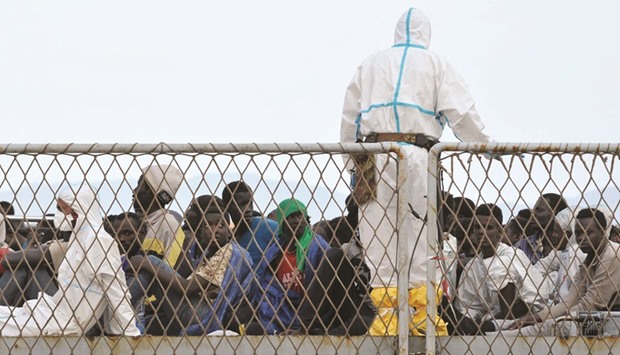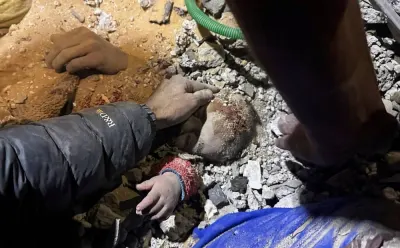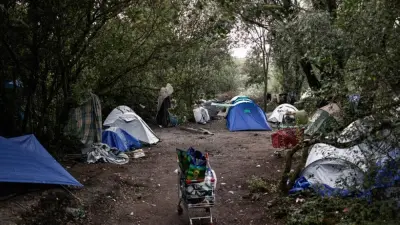In October 2013, when 366 migrants died near the coast of Lampedusa, an Italian island outpost about 100km from Tunisia, European Union leaders vowed to never allow similar tragedies to happen again.
First by Italy only, then by other European nations and non-governmental organisations, the central Mediterranean was filled with search-and-rescue missions that have so far managed to save hundreds of thousands of lives.
Yet, as migrants keep on drowning on what is considered the world’s most dangerous sea route, Rome authorities now say that the problem needs to be tackled at source, with a mix of development and security aid to stop migrants leaving their countries of origin.
“Saving them at sea without a strategy for Africa is not resolutive. We really need to help them at home, starting with investing on international development aid,” Italian Prime Minister Matteo Renzi said in an interview with Catholic newspaper Avvenire.
Three days earlier, speaking at the G7 summit in Japan, Renzi said even Nato units may start rescuing migrants in the central Mediterranean, but he insisted that “the sea is the worst place to save them”.
He renewed calls for the EU to adopt Italy’s Migration Compact, a paper suggesting that the bloc could offer African nations money, as well as entry quotas for workers, students and researchers, in return for them tightening border controls.
“Either Europe (follows up on these proposals) or we will have to do it on our own. There is no time to lose,” the Italian premier told Avvenire, lamenting the lack of European vision on the migration crisis.
“It strikes me that the most clear-headed on the future of Europe have been two citizens of the world who are not European.
I am referring to the president of the United States (Barack Obama). And to the Bishop of Rome (Pope Francis),” Renzi said.
Italy’s Africa plan was proposed in April, as a way of replicating the EU-Turkey deal which has dramatically reduced refugee flows to Greece.
Reactions from European capitals and humanitarian organisations have been mostly positive, but - as usual in EU affairs - changes of policies take time, prompting the Italian government’s complaints that progress is too slow.
“All the victims that we are picking up from the sea are the proof of how far and late Europe is in its relations with African nations,” Italian Interior Minister Angelino Alfano said on Saturday at an event in Lecce, southern Italy.
While trying to reassure public opinion that Italy was not facing an emergency, as migrant arrivals are broadly stable from last year despite the surge of recent days, Alfano called for a “serious agreement to try to contain departures” to be negotiated with Libya.
Ever since the Nato-backed ouster of longtime ruler Moammar Gaddafi in 2011, the north African nation has been in chaos, a situation that has allowed smugglers organising migrant trips to Italy to expand their operations unchecked.
According to the local mission head of the International Organisation for Migration, Othman Belbeisi, there are anywhere from 700,000 to 1mn refugees and migrants in Libya, “but nobody knows how many want to go to Europe”.
But despite Italy’s calls for urgency, not much is likely to happen soon: the Migration Compact is likely to be discussed at an EU summit scheduled for June 28-29, and even if it were to be brought forward, there is no credible Libya authority to negotiate with.
Humanitarian organisations have long had another suggestion: open up legal migration routes - via airlift programmes or regular ferries - so that people will not have to risk their lives in search of asylum or better economic opportunities.
Carlotta Sami, a spokeswoman for UN Refugee Agency UNHCR who said more than 700 died in the Mediterranean this week, wrote on Twitter: “Sunday counting victims. Macabre exercise: Will the world realise the over 700 would have deserved a safe passage?”

Migrants rescued at sea arriving aboard the Italian navy ship Vega in the port of Reggio Calabria, southern Italy, yesterday. A week of shipwrecks and death in the Mediterranean culminated yesterday with harrowing testimony from migrant survivors who said another 500 people including 40 children had drowned, bringing the number of feared dead to 700.


